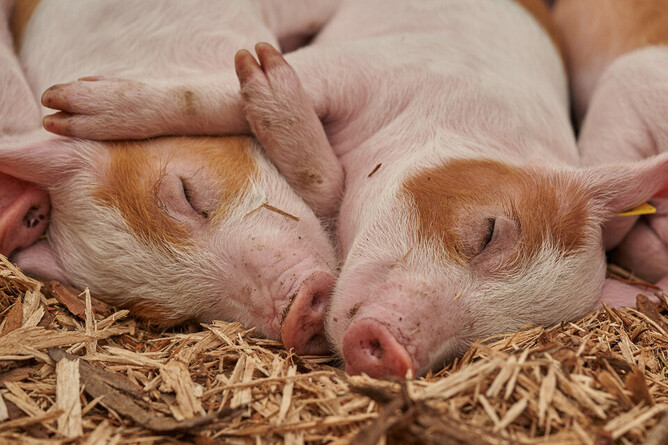Diarrhoea is common in newborn calves, lambs, kids and piglets. The clinical presentation can range from mild diarrhoea to profuse, acute diarrhoea associated with rapid dehydration, severe disturbance of acid-base and electrolyte balance, and death, sometimes in as few as 12 hours.
Diarrhoea in newborn piglets caused by E. coli is one of the most common diseases in pigs, leading to weight loss and increased mortality in the animals. Conventional antibiotics are used for treatment, which, in view of the risk of antibiotic resistance, represents a global problem for human, animal and environmental health. Complementary medicines, such as homeopathic medicines, are therefore increasingly being used in animal husbandry.
The Homeopathy Research Institute (HRI) based in the United Kingdom, regularly reports on studies that show homeopathy has been scientifically proven to work beyond the placebo effect.
A triple-blinded, randomised placebo-controlled study* on piglets in the Netherlands demonstrates the effectiveness of a homeopathic medicine compared to placebo in preventing diarrhoea caused by Escherichia coli (E. coli). The study was able to prove that homeopathy in piglets reduces the risk of developing diarrhoea by a factor of six.
Piglets were treated preventively with homeopathy versus placebo.
In a commercial pig farm with 300 sows, four groups with a total of 52 healthy pregnant sows without E. coli vaccination were enrolled and randomly divided into a homeopathy group and a placebo group. The homeopathic preparation Coli 30K-Nosode was used. After the litter, the faeces consistency of the piglets was checked daily for a period of one week after birth.
A total of 73 piglets developed E. coli diarrhoea during the observation period, ten in the homeopathy group and 63 in the placebo group. The mean duration of diarrhoea tended to be shorter in the homeopathy group.
In the homeopathy group, only 29.1 percent of the animals had diarrhoea, compared to 61.5 percent in the placebo group. Among the infected litters, only about ten percent of the piglets in the homeopathy group showed diarrhoea, compared to 20 in the placebo group. Transmission was also lower in the homeopathy group.
Neither scientists nor farmers knew which piglets belonged to which group. A placebo effect or an effect due to special attention from farmers can therefore be ruled out.
*Camerlink, I., Ellinger, L., Bakker, EJ., Lantinga, EA.: Homeopathy as replacement to antibiotics in the case of Escherichia coli diarrhoea in neonatal piglets. In: Homeopathy. 2010 Jan;99(1):57-62.

